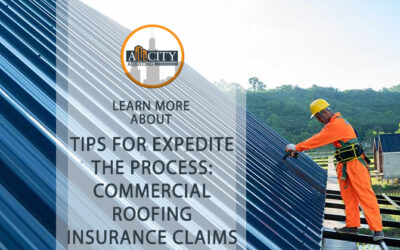Written by Andy Gurczak
May 13, 2022
What’s In This Articles
- Actual Cash Value v. Replacement Cost Value
- What is Actual Cash Value v. Replacement Cost Value Coverage?
- Should you Get Replacement Cost Coverage or Actual Cash Value Coverage?
- If You Have an Issue with Your Insurance Company Regarding Actual Cost Value v. Replacement Cost Value Coverage, Give AllCity Adjusters a call.
Actual Cash Value v. Replacement Cost Value
Certainly, many homeowners never read their homeowners’ insurance policy. Unfortunately, then a covered loss, like a fire or hurricane, causes extensive damage to the home. Of course, the homeowner files a claim with her insurance company. Eventually, the homeowner gets a claim settlement offer from the home insurance company. However, only then does the homeowner learn the difference between actual cash value v. replacement cost value coverage.
What is Actual Cash Value v. Replacement Cost Value Coverage?
In fact, there is a significant difference between the two. Namely, actual cash value coverage means what it says. Therefore, the insurance company will pay the homeowner the actual cash value (ACV) for damaged property.
For instance, you have a fire that damaged your kitchen. As a result, you have to replace some appliances. For example, let’s say you bought your refrigerator five years ago for $1,500. Unfortunately, the fire destroyed the refrigerator.
However, since it is five years old, that refrigerator may only have been worth $750 on the day of the fire.
Of course, you will want another refrigerator of similar quality and kind to the refrigerator you purchased five years ago. However, you are going to have to pay the additional cost for that new refrigerator out of your pocket.
Certainly, you can see situations in which the replacement cost and actual cash value of older appliances, televisions, etc., might be large.
Conversely, if you had replacement cost value coverage (RCV), the insurance company would pay the cost of a new refrigerator of similar type and quality. In this instance, the insurance company would make a first payment of the ACV of $750.
Then, after the homeowner buys the new refrigerator, the homeowner sends proof of purchase to the insurance company. As a result, the insurance company sends a second check to the homeowner. In fact, that check is for the amount of the purchase over $750. Indeed, that applies even if it is more than the refrigerator bought five years ago.
Therefore, Should You Get Actual Cash Value v. Replacement Cost Coverage Coverage?
Obviously, in the scenario above, the homeowner with RCV insurance coverage will come out better. Of course, the full cost to replace the damaged property with similar quality property could be large.
However, RCV coverage means higher premiums-but it may be worth it.
Therefore, people who own expensive electronics, furniture, appliances, etc., may want to consider talking to their insurance agent. Indeed, they may purchase RCV coverage re: personal property coverage.
Conversely, coverage for the home itself is called dwelling coverage. Typically, dwelling coverage for the structure would pay to replace damaged portions of the house at RCV.
However, for particularly high-end homes, the cost to replace expensive molding or ornate banisters may not be covered completely.
Consequently, homeowners may want to consider purchasing extended replacement coverage. In fact, extended coverage will pay an additional 10 to 20% of the policy limit.
Alternatively, the homeowner can purchase a more expensive endorsement. That is called guaranteed replacement coverage. As a result, the homeowners’ company will pay the full cost to replace or repair damaged portions of the home.
Therefore, If You Have an Issue with Your Insurance Company Regarding Actual Cash Value v. Replacement Cost Value Coverage, Give AllCity Adjusters a call.
Notably, we are a family-owned claims company with five decades of combined adjusting experience. Consequently, if there’s one thing we understand, it’s that you need 100% of your claim value.
Unfortunately, insurance companies undervalue your claim 8 out of 10 times. In addition, they hire expensive claims adjusters to ensure they maintain a strong profit margin. Moreover, they have experienced actuaries that help their team of agents challenge your insurance claim.
Of course, you have already gone through a tumultuous event. Therefore, get an agency that gets you more during the claims process.
Firstly, remember we are experts on all types of home insurance policies. Secondly, we can review your policy with you to find out if you have replacement cost or actual cost value coverage.
In fact, insurance adjusters sometimes inflate the depreciation of damaged property if you have ACV coverage.
However, we can show them where they’re wrong.
Therefore, whether you have ACV or RCV coverage, we’ll get you a fai claim settlement because you deserve it.
In conclusion, don’t get fooled, get the company that gets you more. Therefore, call us today at 844.692.3587 or visit our website to find an office near you.
Best way to beat the insurance company is to hire AllCity Adjusting
Real Support When You Need It!
Related Articles
7 Red Flags That Indicate You Need to Hire a Public Adjuster
If you own property, managing roofing insurance claims might seem tough. Knowing how to quickly deal with roof damage insurance claims from water, weather, fire, or unexpected events is helpful. In this guide, we’ll share useful tips to help you understand and work through roofing insurance claims more easily, aiming for a quicker solution.
Navigating Fire Damage Claims: What Every Property Owner Should Know
If you own property, managing roofing insurance claims might seem tough. Knowing how to quickly deal with roof damage insurance claims from water, weather, fire, or unexpected events is helpful. In this guide, we’ll share useful tips to help you understand and work through roofing insurance claims more easily, aiming for a quicker solution.
The Role of a Public Adjuster in Water Damage Claims
If you own property, managing roofing insurance claims might seem tough. Knowing how to quickly deal with roof damage insurance claims from water, weather, fire, or unexpected events is helpful. In this guide, we’ll share useful tips to help you understand and work through roofing insurance claims more easily, aiming for a quicker solution.
Understanding Water Damage Claims: A Comprehensive Guide for Homeowners
If you own property, managing roofing insurance claims might seem tough. Knowing how to quickly deal with roof damage insurance claims from water, weather, fire, or unexpected events is helpful. In this guide, we’ll share useful tips to help you understand and work through roofing insurance claims more easily, aiming for a quicker solution.
Essential Traits and Skills for a Successful Public Adjuster
If you own property, managing roofing insurance claims might seem tough. Knowing how to quickly deal with roof damage insurance claims from water, weather, fire, or unexpected events is helpful. In this guide, we’ll share useful tips to help you understand and work through roofing insurance claims more easily, aiming for a quicker solution.
Tips Expedite the Process :Commercial Roofing Insurance Claims
If you own property, managing roofing insurance claims might seem tough. Knowing how to quickly deal with roof damage insurance claims from water, weather, fire, or unexpected events is helpful. In this guide, we’ll share useful tips to help you understand and work through roofing insurance claims more easily, aiming for a quicker solution.
Stay Up to Date With The Latest News & Updates
Don't Wait - Get More
Get a free 1 hour consultation on your next call. So call today and challenge the insurance company narrative on your policy claim. We can help you with all your public adjuster claims support. Let us help you get more.
Join Our Newsletter
Do you want to learn more about public adjusting. In this newsletter we create helpful tips and hints and you will receive notifications when we post new articles.
Follow Us
Follow us on the following social networks.




Recent Comments